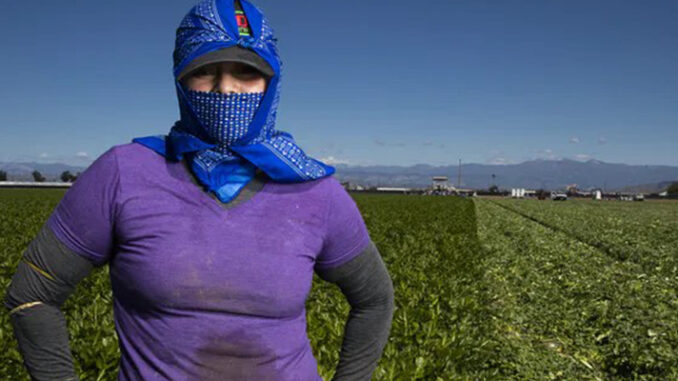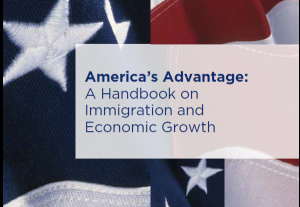
by Erica Cuevas & Laura Roberts
COVID-19 has introduced a new term into American households: “essential worker.” To many who have spent decades fighting to acknowledge the value of frontline and low-wage workers, the acknowledgement is long overdue. As it turns out, even at a time when federal policy becomes increasingly hostile to immigration, foreign-born workers are playing a vital role in holding up the American economy.
Of the almost 49 million essential workers on the frontlines of today’s pandemic, nearly 6 million are immigrants, working as physicians, home health aides, farm employees, grocery store clerks, delivery drivers, and more.
In certain regions and industries, the percentage of immigrant essential workers is even larger. In Wisconsin, for example, immigrant workers process an estimated 80 percent of milk. Similarly, in New York State, the epicenter of the U.S. coronavirus outbreak, at least one in three healthcare workers is an immigrant. In California, immigrants make up one third of all essential workers. And nationally, at least half of all farm field workers and 80 percent of meat processing workers — people we rely on to pick and process our food — are undocumented immigrants.
Looking at this data, it’s hard to deny that immigrant workers are and will continue to hold up the U.S. economy, particularly in this time of crisis. For many companies, this is old news: they have long seen this population as an asset to their business and invested in them as such.
A recent report from JFF found that immigrant workers deliver a massive boost to individual businesses and the U.S. economy as a whole. Their economic contributions account for nearly $2 trillion of total U.S. GDP. They have higher retention rates than the labor force as a whole and are the only talent pool growing at a pace to offset impending retirement of the Baby Boomer generation.
Consider the case of Postmates, the delivery network company that has been designated as an “essential service” in municipalities across the country in response to the ongoing pandemic.
“Postmates was founded by an immigrant, and our business is made possible by the local merchants and flexible workers of all stripes and backgrounds who contribute to our platform every day, says Vikrum Aiyer, vice president of public policy and strategic communications. “That’s why we’ve constantly spoken out on the importance of supporting immigrants, and why we recruit, hire and provide professional development to DACA recipients through apprentice and pre-apprentice programs. We rely on both American-born and immigrant workers to power our platform, and simply put, we cannot succeed without them.”
But increasingly unfriendly federal immigration policy and executive orders are threatening threatens to destabilize 6 million workers in our country’s essential workforce. The private sector has an opportunity to provide the leadership role and investment to maximize the potential of immigrant talent. Investments like those Postmates has made in advocating for the protections of Dreamers and creating a pipeline to recruit and train those individuals, are critically important for protecting key sectors of our economy.
Investing in immigrant workers not only empowers individual workers and their families: it provides a surprising boost to business productivity and returns. For example, research has shown that companies who invest in English as a Second Language adult learning programs see a 123 percent return on investment for the business.
Every evening during the pandemic, cities across the country will hear the daily applause for the frontline workers, millions of whom are immigrants helping all of us weather this pandemic. But it’s an open question whether this acknowledgement will translate into investments that help ensure these workers receive support and can share in the rewards of a recovering economy well into the future.
Policymakers must work to offer stronger protections, pathways to citizenship for Dreamers and DACA beneficiaries, and access to social safety net supports and relief benefits for immigrant workers. At the corporate level, that looks like the adoption of talent practices that help recruit, grow, and develop a company’s immigrant workforce. And more companies can step up and invest in them the way that Postmates and countless other employers have done.
This unprecedented crisis will leave a mark on our communities, companies and country for decades to come. Through all of it, immigrants are keeping our businesses and economy running. Let’s make Let’s make it something we’re proud of.
Erica Cuevas is a former official of the United States Department of Education. Laura Roberts is a former Rockefeller Foundation officer.
.



